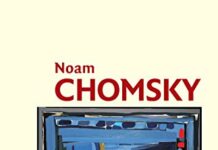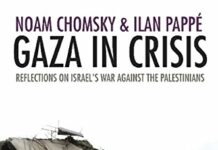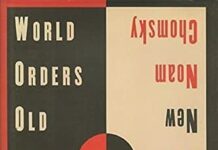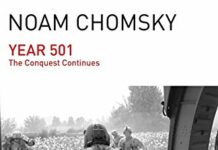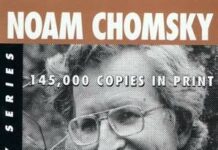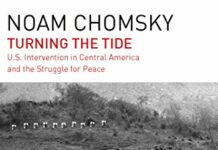
Ebook Info
- Published: 1999
- Number of pages: 172 pages
- Format: PDF
- File Size: 15.09 MB
- Authors: Noam Chomsky
Description
This book is a thorough analysis of John F. Kennedy’s role in the U.S. invsion of Vietnam and a probing reflection of the elite political culture that allowed and ecouraged the Cold War.
User’s Reviews
Editorial Reviews: From Publishers Weekly Veteran critic/activist Chomsky ( Deterring Democracy ) analyzes the issue most prominently posed in Oliver Stone’s film JFK : was President Kennedy a secret dove whose assassination extinguished a chance to end the Vietnam War? Those willing to follow Chomsky’s dry, prosecutorial style will find strong arguments against Kennedy mythologists. He provides context for the Vietnam War with a history of U.S. “economic warfare” against “lesser breeds” and the roots of world inequality. Then, he analyzes the record of planning the war from 1961 to 1964. He notes that studies of the Vietnamese countryside showed overwhelming sympathy for the Vietcong, leading the U.S. to choose escalated violence. One of Kennedy’s trusted, dovish advisors described the president in September 1963 as supporting the war, and Chomsky calls the record on this issue consistent. Shortly after the assassination, Kennedy doves supported Johnson’s Vietnam policies, but changed their stance–and their historical memory–after the 1968 Tet Offensive. Chomsky suggests that fascination with Camelot, like support for H. Ross Perot, indicates a desire to project heroism in a time of cultural malaise. Copyright 1993 Reed Business Information, Inc.
Reviews from Amazon users which were colected at the time this book was published on the website:
⭐Book is an exercise on how smart the author thinks he is. Inadequate analysis
⭐Utilizing the declassified documentary record during the Kennedy Administration, Chomsky makes quite clear the unpleasant fact that John F. Kennedy was essentially no different from Eisenhower, Johnson or even Nixon with regard to foreign policy.While I am a fan of Oliver Stone’s JFK, this book provides a detailed refutation of many claims and assumptions the film implies. For example, the notion that John F. Kennedy was secretly against U.S. intervention in Vietnam (yet the troops remained there the entire 3 years he was in office), and National Security Memo 263 has been totally taken out of context, as Kennedy made it quite clear that he didn’t want withdrawal with failure, and that the “overriding objective” was victory in Vietnam. And National Security Memo 273, the memo which essentially reversed the “withdrawal” plan noted in 263, was drafted on November 21st (while Kennedy was still alive), and signed by LBJ on November 26th, clearly indicating that Johnson was simply continuing JFK’s policies in Nam. As for his remarks, he gave similar remarks to that of why Bush gives that the US should stay in Iraq. On June 17th, 1963, Kennedy said, “For us to withdraw from that effort would mean a collapse not only of South Vietnam, but Southeast Asia. So we are going to stay there”, then saying, “I don’t agree with those who say we should withdraw” – that’s just a sample. On November 22nd, 1961, Kennedy authorized a large scale attack on South Vietnam (yes, South), napalm and “counter-terror” (U.S. terror). It’s interesting that this authorization was signed on November 22nd, 1961, exactly 2 years before Kennedy suffered the fate he authorized – murder.As well, Kennedy authorized the invasion of Cuba on April 17th, 1961, and authorized Operation Mongoose, and only turned down Operation Northwoods because he was he knew it wouldn’t work. Kennedy, according to the official documents, sanctioned crop burnings, germ warfare, sinking fishing boats, etc. John and Bobby knew all about almost everything that happened, and anyone who says otherwise is full of it.Cross reference everything Chomsky says with the declassified documentary record, which is available in book form in the book The Kennedys and Cuba, assembled by Mark J. White.Once you learn about Kennedy’s policies, his assassination, and all the conspiracies become completely irrelevant because he didn’t do ANYTHING different from his predecessor and successors. He wanted Vietnam to be a sphere of influence of the United States, regardless how many civilians died, he wanted Castro to be murdered, and Cuba to return back to being mafia and US Corporation ran, and even implemented the fascist dictatorship of Brazil to take power, which they did in 1964, all of which break international law. But then again, since when does the US observe international law?This is a must read.Anton BateyAnton_Batey@yahoo.com
⭐Great Price! Excellent Shipping Time! Thank You!
⭐It is an excellent book to look at the era from today’s perspective. It is great for discussions in my history class
⭐What is missing from Chomsky’s book is the notion that if anyone told JFK right to his face precisely what the United States was going to do in Nam for the following ten years (I think George Ball tried to do this), the president himself wouldn’t have believed it, and could have told him, “You’re crazy . . . ” (as I remember this, the president expressed himself with an expletive) and really meant it. Anyone who thinks that American policy in Vietnam ever made sense is underestimating the ability of the government to lie whenever it is trying to picture what its national honor adds up to in evens and odds. I knew that something was crazy when I read in Rethinking Camelot that John Newman had written a letter to “The Nation” in which he said, “Let’s get serious.” Actually, the policy always begged to be compared with some outrageous joke, and “The Nation” has been great at coming up with jokes (I have even read the admission by Calvin Trillin that he used jokes in his column) to match such situations. Possibly the funniest thing that I ever read just showed up again in the April 10, 2000 issue of “The Nation,” in a book review by John Leonard. “It’s worth recalling that when Freud finally got permission to leave Vienna in 1938, the Gestapo obliged him to sign a certificate saying that he had been well treated by the authorities. He added a sentence of his own: ‘I can heartily recommend the Gestapo to anyone.'” (p. 26) American policy in Vietnam was always a dream of imposing that kind of order in a country in which a majority of the people were not Americans, and might even try to kill Americans, if you want to know the truth. I can name one Kennedy adviser who was willing to tell LBJ in November, 1965, that the odds were about even that things were getting worse in Vietnam, and were going to get a lot worse as the plans at that stage were implemented, but he wouldn’t have even been keeping his job if he told everybody what he thought. I’m actually glad McNamara didn’t resign in protest, because he knew that other people could do his job worse than he could, and he was willing to sacrifice himself to save the country from the kind of stupidity that was assumed for anyone in his position, of which he was highly aware.
⭐Noam Chomsky is a fraud.A fake lefty. An agent of the right wing.This book is a pack of lies in which he smears President Kennedy as a hawk.Read “JFK and the Unspeakable: Why He Died and Why It Matters” for the facts.Kennedy was, by his own words, “a peace at any price president.”With Vietnam, for which he’d just signed NSAM 263 for FULL withdrawal of ALL US personnel by end of 1965.With Russia, with whom he’d signed a nuclear test ban treaty after years of effort.Over and over he proved it.Listen to his masterpiece speech at American University:http://www.americanrhetoric.com/spee…tyaddress.htmlChomsky props up the official lies on President Kennedy.Why does he repeatedly lie about President Kennedy’s record and murder?Because he is an agent of the right yet masquerades as a dissident in order to confuse actual dissidents.
⭐Chomsky analyse avec minutie les documents historiques et le contexte culturel de la présidence de Kennedy sur l’intervention américaine au Vietnam. Il conteste une relecture positive de JFK qui le dédouanerait de toute volonté d’implication directe et sur une grande échelle de l’armée américaine au Vietnam, faisant porter en définitive le poids de l’enlisement sur les épaules de son successeur LBJ. Il montre au contraire l’ardeur de JFK pour la victoire en Indochine et comment un certain nombre d’historiens et de figures de l’administration Kennedy ont voulu préserver la figure de Kennedy après l’offensive du Têt et l’échec d’une victoire contre le mouvement d’indépendance vietnamien. le livre est à la fois un excellent exercice de démystification et une étude historique précise de ce moment central de l’histoire des USA – et du Vietnam…
⭐
Keywords
Free Download Rethinking Camelot: JFK, the Vietnam War, and U.S. Political Culture (Borgo Literary Guides; 1) in PDF format
Rethinking Camelot: JFK, the Vietnam War, and U.S. Political Culture (Borgo Literary Guides; 1) PDF Free Download
Download Rethinking Camelot: JFK, the Vietnam War, and U.S. Political Culture (Borgo Literary Guides; 1) 1999 PDF Free
Rethinking Camelot: JFK, the Vietnam War, and U.S. Political Culture (Borgo Literary Guides; 1) 1999 PDF Free Download
Download Rethinking Camelot: JFK, the Vietnam War, and U.S. Political Culture (Borgo Literary Guides; 1) PDF
Free Download Ebook Rethinking Camelot: JFK, the Vietnam War, and U.S. Political Culture (Borgo Literary Guides; 1)
